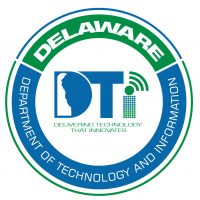 DOVER – A partnership between the Department of Natural Resources and Environmental Control (DNREC) and Delaware’s Department of Technology and Information (DTI) with the Northeast Recycling Council (NERC) in the national State Electronics Challenge has saved the state more than $110,000 in energy costs for 2017. Participation in the State Electronics Challenge was open to all state agencies with IT services managed by DTI, including DNREC.
DOVER – A partnership between the Department of Natural Resources and Environmental Control (DNREC) and Delaware’s Department of Technology and Information (DTI) with the Northeast Recycling Council (NERC) in the national State Electronics Challenge has saved the state more than $110,000 in energy costs for 2017. Participation in the State Electronics Challenge was open to all state agencies with IT services managed by DTI, including DNREC.
The annual electronics challenge encourages state, tribal, regional, and local governments to responsibly manage their offices more energy-efficiently by purchasing greener office equipment; by reducing the impacts of these products during use; and by managing obsolete electronics at the end-of-lifecycle in an environmentally safe way.
“Through DNREC’s partnership in the State Electronics Challenge Program we are supporting the state’s efforts at managing the lifecycle stewardship of electronic equipment,” said DNREC Secretary Shawn M. Garvin. “The program provides tools to track progress, measure results, and see environmental benefits. DNREC’s efforts also included sending most of our electronic equipment for reuse in Delaware schools, with the remainder going to a certified recycler.”
“It is a priority of Governor Carney’s administration to increase the efficiency and effectiveness of Delaware government, and our participation in the State Electronics Challenge has been a great way for us to save the State money in energy costs,” said Delaware Chief Information Officer James Collins. “DTI supports DNREC’s, and all of our IT centralized agencies’ efforts to leverage our purchasing power and manage the IT environment in a way that aligns with our sustainability goals.”
The collective action of Delaware’s state agencies participating in the State Electronics Challenge Delaware yielded the following environmental benefits during 2017:
- Savings of over 1 million kWh of energy, equivalent to powering 83 homes/year;
- Reducing 163,800 metric tons of carbon equivalents, equivalent to removing 34,630 cars from the road/year;
- Reduced toxic materials, including lead and mercury, by 5 pounds; and
- Prevention and diversion of 24,840 pounds of municipal solid waste, equivalent to waste generated by seven households/year.
DNREC and DTI chose electronics that meet the state’s IT and sustainability goals for purchasing and performance, using criteria based on Electronic Product Environmental Assessment Tool-registered products as a required or preferred standard in bids, contracts, and/or leases for IT equipment in calendar year 2017.
Many state agencies practice responsible reuse of electronic devices and partner with the Delaware Center for Educational Technology’s Partners in Technology Program (Par-Tech) to distribute the devices to schools where they are refurbished and serve a second life. This program provides a cost-effective alternative to new equipment purchases for those schools that need additional computer systems.
Responsible reuse also reduces mining of raw materials and the carbon footprint of manufacturing. All electronic equipment that is not refurbished for schools is sent to a certified e-Stewards electronics recycler to ensure recycling best practices for toxic materials and high standards of environmental, health, and safety protections.
For more information, including the full report on the states’ actions and benefits in the State Electronics Challenge, please email Don Long of DNREC’s Recycling Program within the Division of Waste & Hazardous Substances, or call 302-739-9403.
Media contact: Joanna Wilson, DNREC Public Affairs, 302-739-9902
Vol. 48, No. 87
-30-